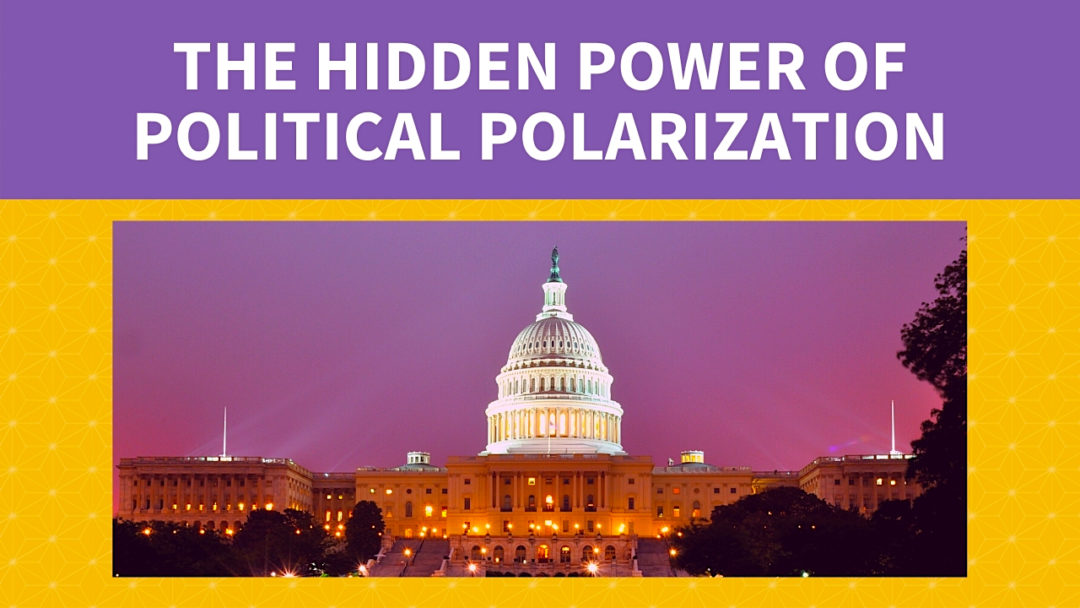…ideological thinking is now much more closely aligned with partisanship than in the past. As a result, ideological overlap between the two parties has diminished: Today, 92% of Republicans are to the right of the median Democrat, and 94% of Democrats are to the left of the median Republican.
But there is a silver lining to the legislative gridlock. The tension and friction that arise out of the ideological rifts between the left and the right is a tremendous creative force that wants to give birth to something new.
In this podcast, Jeff takes us on a brief tour of the history of polarization in the US as far back as the Revolutionary War, between the British/Tory alliance and the upstart Patriots. Many political polarities are enduring: liberalism vs conservatism, big government vs small government, the private sector vs the public sector—we keep trotting these things out into the marketplace of ideas to duke it out. As a result they evolve, not to a mushy middle, but into larger, more inclusive perspectives that include the best of both poles, resulting in, for example, more socially conscious businesses and more results-driven government agencies. We can even see evolution at work in the way we fight it out–once with muskets and cannons, and now with tweets and sound bites. Progress!
Polarization gets people to tease apart their fused, vague, emotionally-laden positions into clear ideologies. When one of these ideologies is clearly defeated, most people give up and change their minds. People don’t want to hold onto defeated causes. Nobody wants to prosecute homosexuals anymore. Some do, of course, and progress will be delayed until their funerals. But either way, their kids have long since moved on. ~Jeff Salzman
At integral stages of development, we leave behind the mono-perspectival thinking of first-tier memes and actually befriend conflict as an engine of evolution. We can practice by inhabiting political polarities with as much integrity as possible, “teasing them apart so we can see the components and begin to work with them in an ever more intelligent way,” says Jeff.
This is the most important practice I’ve learned while having the privilege of working with Jeff: the ability to relax into multiple perspectives, and see that each perspective offers a piece of the truth.
Speaking of polarities, in this episode we also hear from author Steve McIntosh about the final chapter of his new book, The Presence of the Infinite. In Steve’s vision of an evolutionary spirituality the infinite shines through the finite via the primary, intrinsic values of beauty, truth and goodness.
Listen as Steve and Jeff discuss the chapter “Toward a Method for Evolving Consciousness”, which de-emphasizes faith in favor of practices for experiencing the divine in real time. “I don’t have a full blown manifesto of the method for the Second Enlightenment,” Steve says, “but I’m beginning to explore the possibilities and the premises that make such a method seem possible.”
Plus, Jeff puts Ken Wilber’s new teaching, Full Spectrum Mindfulness, in the context of an integral/evolutionary spiritual lineage, with an integrated path for both waking up and growing up. Don’t miss it.
Podcast: Download
Subscribe: Google Podcasts | RSS






